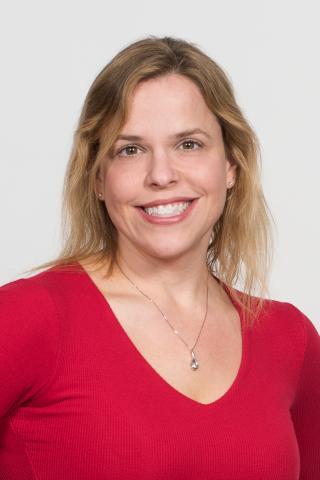

Professor of Psychology (PhD)
College of Arts and Sciences
Marion Campus
If I were to define a Glass Breaker in one word, it would be an activist. There are many existing social structures that are unfair to women and other groups. An activist uses their personal power, grit, perseverance, and courage to challenge and offset these social structures. An activist is someone who stands up for social justice, “breaking the glass” of the status quo by making sure people have equal access to opportunities.
My career path has been pretty straightforward. I knew at a relatively early age [eighth grade] that I wanted to study body image and eating behavior due to seeing many women — including friends and family —struggle with body image and eating disorders. I wanted to help them, as well as all women (and men) struggling with these concerns. I earned my PhD in counseling psychology that allowed me to research these topics and engage in therapy to help those afflicted with body image and eating issues.
My leadership style is egalitarian, collaborative, and collegial. I listen to everyone's perspective, make sure those voices are heard.
First was getting my PhD in counseling psychology, which was a good fit for me because of its focus on wellness, strength, and appreciation of diversity, which I used to shape my work in body image and eating behavior, and ultimately my profession. Scholars in my field typically focus on pathology: negative body image and eating disorders. In contrast, I started focusing on positive body image and intuitive eating. I developed measures of these constructs, which have been used in the U.S., U.K., Australia, and have been translated and used in research and clinical work within many countries. Another career investment I made was to review articles for professional journals. From there, I was asked to join the editorial boards for journals. I then became an associate editor for Body Image, the top journal in my field. As of January 1, 2018, I became the editor-in-chief of that journal.
My first major mentor was Linda Subich from the University of Akron who earned her PhD from The Ohio State University. She encouraged me to apply to counseling psychology programs and said I would be a good fit with those programs. She was right. She supported my research and what I wanted to explore. She was a champion for me and helped me have my own voice in terms of my research.
Another mentor was Nancy Betz at Ohio State. Nancy helped me integrate into the graduate program faculty and navigate the tenure and promotion process.
I've recently achieved three of my career goals: to write a book on positive body image and embodiment, to become the editor-in-chief of Body Image, and because I’ve had mentors, to mentor female researchers in my field to make sure that they have access to opportunities.
One challenge that I've faced has been mansplaining. Mansplaining is when a woman presents an idea and it is largely ignored, and then a man proposes the same idea and it’s suddenly great. It has been a challenge being mansplained and identifying it in a way that doesn't make the person defensive while honoring the fact that it was a woman’s idea. I see it as my role to help female colleagues have their voices heard and respected.
A few junior female faculty at my campus have faced sexual harassment by students. They came to me and we proactively addressed it with our dean. We then developed a policy to help prevent future occurrences of this type of harassment on our campus.
I would advise women to think about what will advance your career. Say yes to those opportunities that will advance your goals, and say no to requests that will not. For example, I said yes to journal reviewing because I knew that I wanted to eventually become an editor for a journal in my field. We have to change the social system where women are asked to do many of the menial service requests that don't further their careers. Women, like men, need to be able to say “no” to such requests and not be hurt in the long run.
What's next? Enjoying being an editor and learning this role. Playing with my seven-month-old chocolate lab. Resting and recovering after the stressful process of editing and writing my book. Honoring my late colleague, Lina Ricciardelli, who recently passed away of breast cancer by organizing a special issue in her honor that will appear in Body Image.


